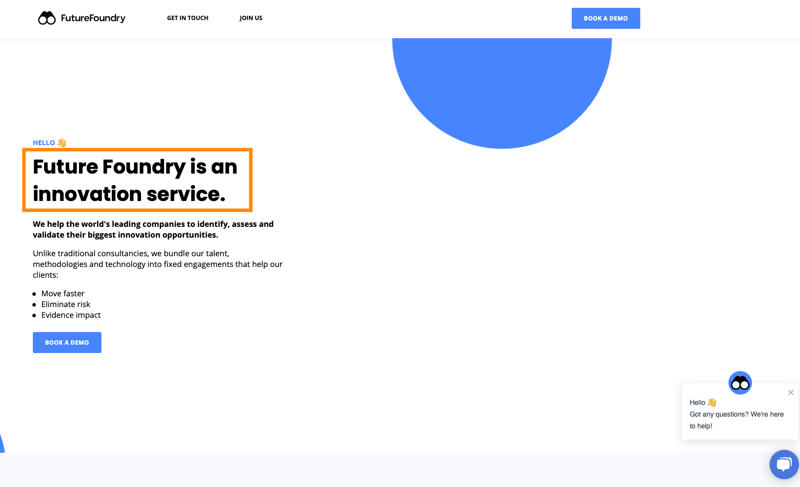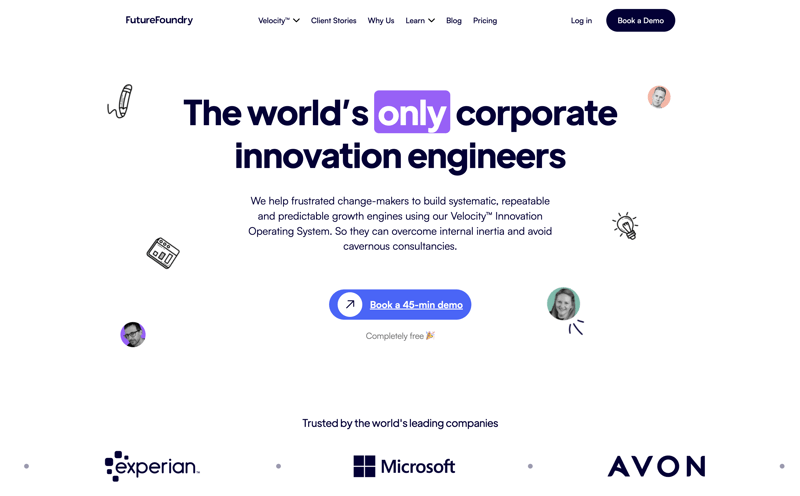PoSITIoNINg VS. dIFFERENTIATIoN: WHAT IS THE dIFFERENcE?
Positioning and differentiation.
What does it all mean?
Are they the same thing?
Can you achieve both for your consultancy?
All great questions - it’s almost as if I wrote them myself - that we’ll cover down below.
What's the key difference between positioning and differentiation?
In simple terms…
Positioning is how your prospects perceive you.
Differentiation is the degree to which you stand out from your competitors.
Prospects could perceive you favourably (down to something simple like your consultancy’s brilliant charity work, your relatable Instagram posts, or the impressive CV of your founder). But you may still be offering an undifferentiated service (like being an “award-winning” MSP that offers 24/7/365 service to B2B companies in London).
By contrast, prospects might perceive you unfavourably (because you’re new to the game, your website is full to the brim with broken links, or you’re priced so low that people doubt your methods). However, you may still offer a completely differentiated solution (you probably differentiated your consultancy with our MEHscapology programme).
Still with me?
Let’s delve deep into each…
Positioning 101
Positioning is the lens through which your market views your value proposition.
If the lens matches your prescription, is clean and clear, and used in perfect lighting conditions, then more of your market sees your value proposition with clarity, and in great detail.

Being well positioned will get you:
- Eyeballs. More of your great-fit prospects will see your offer as relevant.
- Opportunities. The more people that perceive you favourably, the more you’ll get spoken about: offline and online. This could lead to a whole host of investment, partner, or M&A opportunities.
- Wins. A winning position lets you command higher prices with less resistance, resulting in 3x win rates (CSO Insights).
Being poorly positioned will get you:
- Reliant on referrals. With an unsteady, unpredictable and inconsistent lead flow, you’ll scrap to find that next sale.
- Low conversions. Most sales calls will end with you defending your consultancy to a prospect, as opposed to hearing that all-important “This is what we need”.
- Competitive on price. If you aren’t perceived as anything special, prospects will see you as a commodity. You’ll fight as the lowest bidder, for the lowest margins, just to make the sale.
So how do you get into your prospects’ line of focus?
The traditional positioning strategies aren’t particularly simple or easy.
You can position yourself based on:
- Price or value - the best bang for your buck
- Quality - the best service in the industry
- Usage - this one isn’t relevant for consultancies, since there’s only one way to use that kind of service, but we’re throwing it in for completeness
Fortunately, we prefer teaching non-traditional positioning strategies. Below, we’ll share two positioning methods, both of which harness elements of differentiation, in order to be perceived positively by prospects.
And yes, they are both simple, and easy!
Positioning your consultancy or B2B company
A Brand New Category
The first method is to position your consultancy based on a brand new category.
In creating a new category, you occupy a category of one. You become, “the world’s only”.
You simply cannot be compared to competitors, because by definition, there are none.
Here’s an example from one of our favourite clients, Future Foundry.
The before…


The after...


Much better, don’t you think?! 👏👏👏
A Unique Mechanism
The second positioning method we love to preach, is to showcase what your consultancy has to offer, in a unique way.
We call this the unique mechanism.
There are 3 types of unique mechanism, which we delve into in this article.
But for now, I’ll teach you the easiest one: The Transformative Mechanism
All you have to do is agree the process for which you deliver your consultancy services, and give it an identity.
If you offer multiple services, you can create a unique mechanism for each of them. But we suggest starting with your core offering, first.
The process can be linear or cyclical (depending on whether you offer a service that repeats over time, or not).
Let’s assume you’re a bog standard MSP. Every time you onboard a new client, you host a discovery session to understand their needs and requirements. Then, you go back to the team, to determine what you can provide. Once agreed, you’ll design the set up of software, hardware, support, etc. Then you implement it all.
Pretty generic, right? Let’s jazz it up…
Your discovery session? Let’s call this phase: Devise.
Your huddle with the internal team? Determine.
Your set up? Design.
The implementation of everything? Deliver.
Would you look at that? You now have a brilliant 4D process for delivering your solution.
Give it a name (an identity).
-1.png?width=660&height=265&name=UM%20(4)-1.png)
Get it designed. You can do it yourself in Canva, or pay a designer £50 to do it for you on Upwork.
And that is literally all there is to it. You can now show your unique method of delivering your service to prospects, which no other competitors can claim.
Differentiation 101
Now onto our other deep dive.
Differentiation is the distance between you and your competitors.
Successful differentiation gives you a competitive advantage over rival consultancies, which leads to a greater market share.
Greater market share means more clients which means more wins which means more growth.
Am I teaching Granny to suck eggs yet?
Stay with me.
As with positioning, a consultancy can differentiate themselves in many ways. We call this the unique selling point, or USP. Examples include:
- Features - access to an exclusive network of providers
- Performance - 24/7 support
- Distribution - present in over 250 countries
- Timing - disaster recovery plan implemented in less than 24 hours
- Result - 3x your pipeline in the first 6 months
- Guarantee - completely risk-free
- Experience - join us for exclusive bi-annual health and wellness retreats, as part of your membership
- Price - ignore this one, because you never want to differentiate on price
The list goes on.
Differentiating your consultancy or B2B company
You can differentiate your company in a number of ways. You don’t need to achieve all of the ways. You only need to achieve one.
Some ways are more difficult and costly than others.
Take ‘distribution’. You can’t just set up your consultancy in 30 countries, overnight.
But you can completely differentiate your consultancy in a day, by other means.
We’re not kidding.
The result?

